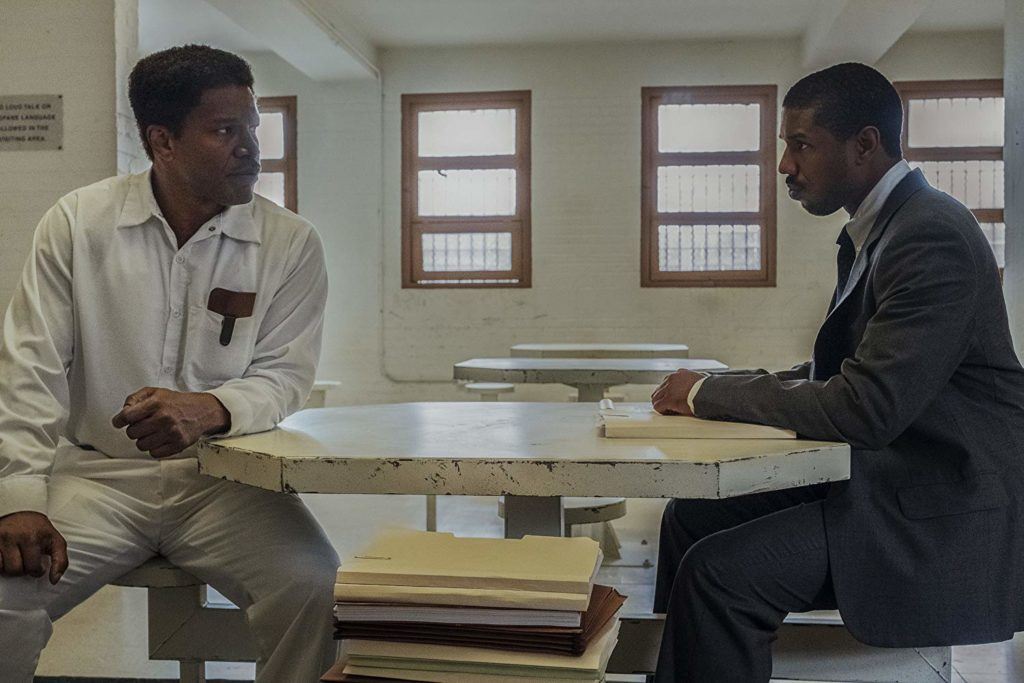Just Mercy

Jamie Foxx and Michael B. Jordan star in JUST MERCY. (Photo: Warner Bros.)
As a true-life portrait of the convergence of widespread racial bias and small-town injustice, it’s frightening to realize that Just Mercy takes place only 30 years ago.
That thought simmers beneath the surface of this uneven biopic of an idealistic civil rights attorney fighting the system on behalf of Death Row inmates, which is another example of how the legal system in segments of the Deep South is hampered by a lingering legacy of institutional racism.
In the late 1980s, Bryan Stevenson (Michael B. Jordan) is a recent Harvard graduate working as a law intern in Georgia, where he’s spurred to make a difference. So he bypasses potentially lucrative jobs at established firms and focuses on pro bono work in Alabama.
His first major case brings him to a town proudly proclaiming itself without a hint of irony as the home of To Kill a Mockingbird. He meets with Walter (Jamie Foxx), a laborer convicted of the murder of a white teenager years earlier despite evidence to the contrary. Walter initially doubts Bryan’s sincerity and ability, making for a volatile relationship.
Bryan perseveres against the odds with help from a local paralegal (Brie Larson), who must find a way not only to prove Walter’s innocence before his impending execution, but also to incentivize the corrupt local authorities, who already have their scapegoat, to reopen the case in the first place.
The slick and straightforward screenplay — based on Stevenson’s memoir — trudges through some formulaic procedural elements inside and outside the courtroom, and it needs a tighter focus.
However, the film sufficiently gets the blood boiling while making a persuasive argument against capital punishment. Amid some sobering Death Row sequences, director Destin Daniel Cretton (The Glass Castle) favors expressive close-ups and lengthy reflective pauses that enhance the intimacy of such scenes without turning manipulative or heavy-handed.
The actors bring depth and complexity to their roles, helping to smooth out the narrative rough patches and hagiographic tendencies. Jordan makes the determined Bryan a window for the audience into this world, while Foxx brings a quiet intensity and a hard-earned sympathy to his best performance in years.
The film shines a worthwhile spotlight on Bryan’s efforts, which are ongoing three decades later. It makes a case without resorting to cheap sentiment, and might even provide a vessel for healing if enough folks heed its title.
Rated PG-13, 136 minutes.